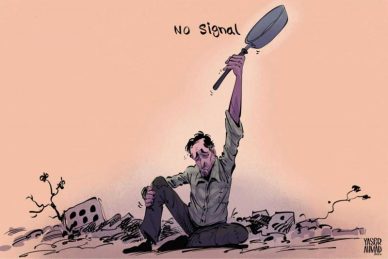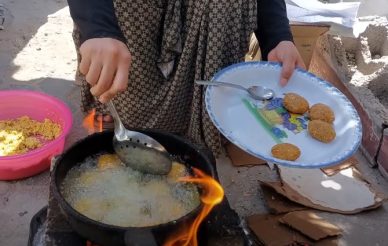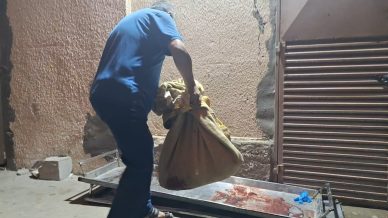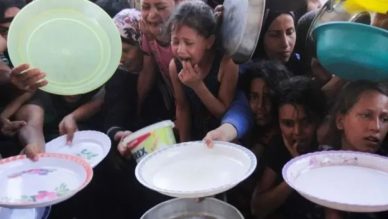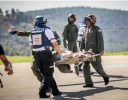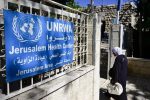GAZA, (PIC)
Unlike children elsewhere in the world, the children of Gaza face incredibly harsh and severe conditions due to the ongoing Israeli genocidal war that has entered its 11th month.
Gaza’s children have long been primary targets of the Israeli war machine since the start of the mass extermination campaign, resulting in 18,000 child martyrs and 17,000 children losing their parents.
Ten-year-old Bara’a Labad wept as she spoke to our correspondent, saying that the Israeli occupation forces killed her father, Dr. Abdul Munim Labad, in a strike targeting their home in Gaza City last November. She added that in addition to losing her father, the genocidal war has placed heavy burdens on her, including the daily task of fetching water. She expressed her frustration, saying, “Instead of being in school, I spend every day waiting in line to fill water.”
Bara’a emphasized that the occupation is trying to crush their will and childhood, but she believes they will fail. “Every day, I carry water jugs that are heavier than I am,” she said.
Bara’a’s burdens don’t end there; she is also responsible for finding energy sources to charge her mother’s phone and the home’s lighting battery.
Eight-year-old Mohammed Al-Hassan, displaced from Rafah to Al-Mawasi, Khan Yunis, walks more than two to three hours daily under the scorching sun to fill a water jug. He told our correspondent, “I can’t walk on my feet anymore because of the exhaustion; we are worn out.” Mohammed wishes for the war to end so he can return to his home and his life. He loves playing soccer and drawing, but the heavy burdens placed on him have made him forget these hobbies.
“Children around the world sleep happily in their beds and in safety, but we sleep in fear, pain, and anxiety,” he said, sending a message to the world: “Stop the war immediately.”
The United Nations Relief and Works Agency for Palestine Refugees (UNRWA) states that Gaza’s children carry weights heavier than their own, spending up to eight hours daily meeting basic needs.
Dr. Ezzedine Zaqzuq, a physician at an UNRWA clinic, noted that these burdens on children have long-term negative effects. He told our correspondent that the consequences could be physical or psychological, including hernias and spinal disorders due to heavy lifting. Children may also suffer from sun exposure and diseases caused by lack of cleaning supplies and water, such as hepatitis and skin conditions.
UNICEF has long called for shielding Gaza’s children from the horrors of war, but these pleas have fallen on deaf ears as the occupation continues to kill, displace, and deprive them of their families.
On the beach of Deir al-Balah, nine-year-old Fadi Al-Abadla sits on a small stall selling goods. He told our correspondent that his father was martyred at the start of the war during a fiery barrage executed by warplanes in the Katiba area. Fadi now finds himself responsible for his mother and younger brother, forced to work to support them in these dire wartime conditions. Fadi told our correspondent that he wishes for the war to stop so he can return to school, complete his education, and become an engineer, just as his late father had hoped.
UNICEF reported at the end of July that the escalation of war in Gaza has had catastrophic impacts on children and families, with children being killed at alarming rates. According to the latest estimates from the Palestinian Ministry of Health, over 14,000 children have been martyred, with thousands more injured. An estimated 1.9 million people—about nine out of every ten Gaza residents—have been internally displaced, with more than half of them being children. They lack sufficient water, food, fuel, and medicine. Over 600,000 children are trapped in Rafah alone, with no safe place to go. Their homes have been destroyed, and their families scattered.
The report highlighted that many of these children have been displaced multiple times, losing their homes, parents, and loved ones. They need protection and the few remaining services they rely on, including medical facilities and shelters.


